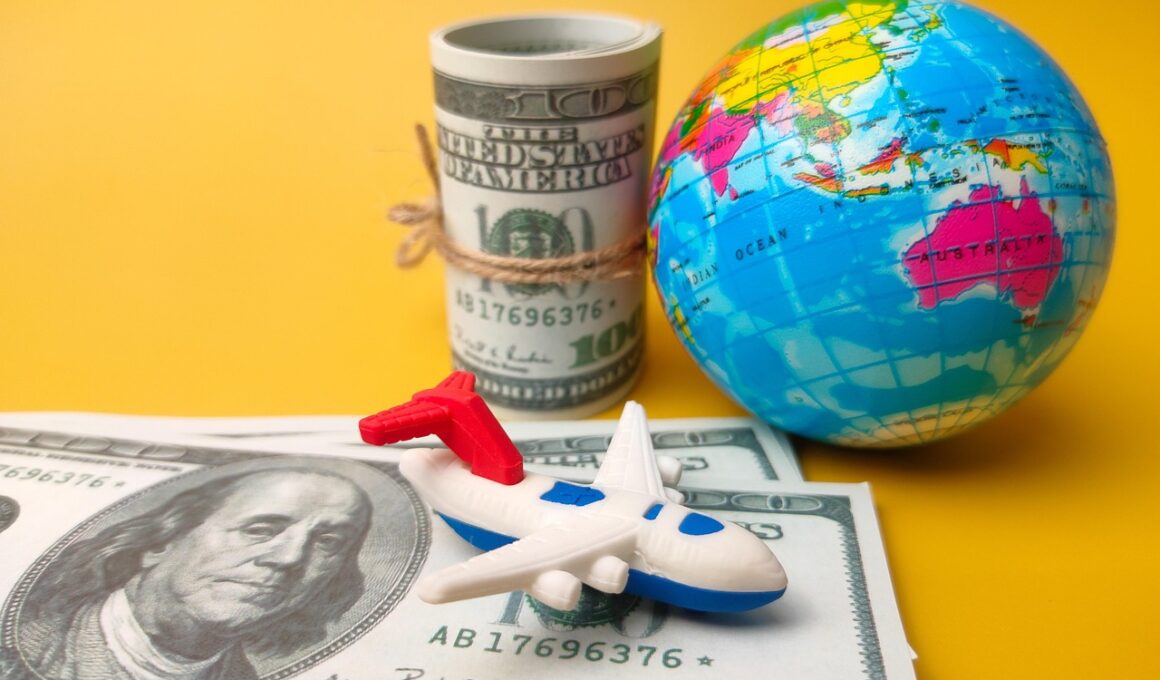Travel Industry Triumph: PPC Case Study on Seasonal Campaigns
The travel industry continues to evolve, largely benefiting from effective marketing strategies like Pay-Per-Click (PPC) advertising. In our case study, we examine a notable travel agency that implemented PPC campaigns focused on summer vacation packages. They identified key seasonal trends and adjusted their ad messaging to capitalize on consumer interest, thereby enhancing their visibility during peak periods. The targeted keywords were extensively researched, focusing on phrases that potential travelers frequently searched. This research was vital in structuring ad campaigns attractively around these phrases. They also invested in compelling ad copy and appealing visuals, which significantly increased click-through rates. A significant part of their strategy involved understanding seasonal demand and positioning themselves as a premier option for budget travelers. Responsive ads helped them reach their audience with high importance given to mobile compatibility as well. Each effort contributed to a measurable rise in traffic and, ultimately, conversions. This case exemplifies the impact of intelligently managed PPC campaigns within the travel industry, showcasing how strategic planning and execution can yield impressive results when aligned closely with consumer behavior patterns.
In the case of this travel agency, the foundation of their PPC success was rooted in detailed analysis and segmentation of their target audience. By profiling their ideal customer base, they ensured that their advertisements were not only reaching a broad audience but specifically resonating with those most inclined to book travel packages. Implementing geographic targeting allowed them to focus on regions with higher vacation tendencies during the summer months. Additionally, they utilized retargeting strategies to re-engage users who had previously interacted with their website, steering them back toward the booking process. This two-pronged approach of finding new customers while nurturing previous visitors helped to create a sustained ad presence in the competitive travel market. Visibility wasn’t solely reliant on keyword selection; leveraging negative keywords also played a crucial role in refining their outreach. By filtering out less relevant searches, they conserved valuable advertising budget that they could allocate towards more promising avenues. Ad budgets were constantly monitored, allowing for flexible adjustments to maximize ROI on every dollar spent. Consequently, the data-driven adjustments mirrored real-time performance metrics like click-through rates, customer engagement, and conversion levels, greatly enhancing overall outcomes.
Effective Budget Allocation
Another key aspect of the agency’s PPC campaign was their strategic budget allocation, which was critical in ensuring that their funds were utilized efficiently. From the onset, they established a clear budget guided by anticipated seasonal trends and historical performance data. By allocating more budget to campaigns during the height of summer travel, they increased their visibility exactly when potential customers were most active. Furthermore, they embraced the concept of dayparting, which allowed them to analyze the timeframes when their ads received the most clicks and conversions, adjusting bids accordingly. This meant maximizing ad spend during peak hours while minimizing it during slower times, thus protecting their overall budget. Such a meticulous approach enhanced campaign performance significantly. The agency also applied A/B testing strategies to discover which ad variations resonated well with their audience. These tests provided invaluable insights that informed future campaign decisions, ensuring they continued optimizing their ads as seasons progressed. This empirical approach not only streamlined their efforts but solidified their competitive edge in the vibrant travel industry.
Beyond the initial engagement strategies and budget management, closely monitoring performance metrics was integral to the agency’s PPC campaign success. They utilized analytic tools to track various KPIs, such as click-through rates, cost-per-click, and conversion rates, enhancing their understanding of advertisements’ effectiveness. Frequent assessments enabled them to make real-time adjustments, whether it involved refining ad copy, changing keywords, or reallocating budgets. Remarkably, the agile nature of their PPC strategy allowed them to quickly pivot in response to unpredictable market dynamics, such as unexpected travel restrictions or shifts in consumer preferences. Adaptability became a hallmark of their approach, allowing them to preserve engagement with potential customers regardless of the situation. Additionally, they took advantage of remarketing efforts to reconnect with previous visitors, providing tailored messaging based on previous interactions. Such efforts not only amplified brand recall but also increased the likelihood of bookings among returning customers. Through the analysis of collected data, the agency continuously fine-tuned its approach, reinforcing the notion that agility and responsiveness are crucial to thriving in dynamic marketing landscapes.
Creative Ad Strategies
In conjunction with responsive metrics, their ad strategies were complemented by creativity and innovation. The travel agency crafted ads that incorporated compelling storytelling elements, which appealed to the emotions of potential travelers. Visual appeal was also a priority; the agency employed high-quality imagery that captured the allure of destinations, enticing users to click. Innovative formats, such as video ads showcasing stunning holiday imagery, engaged users more effectively than standard text-based ads. These videos highlighted customer experiences and testimonials, positioning the agency as a credible travel partner. Alongside these engaging elements, they ensured that all ads were optimized for mobile screens, meeting consumers where they spend a large portion of their time browsing. This inclusive strategy resulted in higher engagement rates across diverse platforms, including search engines and social media. The combination of empathetic messaging and visual stimulation distinguished the agency’s campaigns from competitors, fostering a deeper connection with their audience. Importantly, these creative efforts not only enhanced visibility but also reinforced a brand identity synonymous with adventure and memorable experiences.
As the season progressed, continuous learning from campaign trials enabled the agency to adapt strategies based on real-time feedback. They utilized insights gleaned from various campaigns to optimize ad performance in subsequent iterations. A nurturing approach towards customer interactions was evident; they focused on creating more personalized ad experiences based on user behavior data. This meant showcasing travel packages uniquely tailored to each user’s preferences or communicating messages that resonated with their interests. Implementing such changes resulted in elevated engagement levels and meaningful connections with the audience. Additionally, the agency established strong relationships with travel influencers, expanding their reach to key demographics through SEO-driven collaborations. This partnership opened up new avenues for promoting campaigns and significantly diversified audience engagement. Aligning their PPC efforts with these influencers meant unparalleled authenticity and trust, which played a pivotal role in encouraging conversions. The convergence of these synergistic endeavors crafted an intricate framework ensuring successful outcomes throughout the PPC campaigns, instilling confidence among the agency’s stakeholders regarding the effectiveness of their marketing spend.
Measuring Lasting Success
By evaluating the outcomes of their PPC campaigns through a long-term lens, the travel agency gained insights into sustainable strategies. Their post-campaign reviews focused not only on immediate returns but also on building lasting customer relationships. These analyses identified key success factors such as clicking behavior, repeat booking patterns, and customer feedback. This comprehensive approach provided a 360-degree view of campaign effectiveness across multiple dimensions. They continually sought opportunities for improvement, whether via enhancing ad creativity or optimizing landing page experiences. The agency’s commitment to thorough evaluation established a robust feedback loop that drove successful campaign planning year after year. This deep-rooted commitment to measurement assured consistent learning, allowing the agency to iterate on their strategies at every turn. Their results were particularly notable, showcasing a clear relationship between their methodological approach and improved booking rates during peak tourist seasons. The efforts culminated in a loyal base of returning customers, showcasing that PPC ads can significantly impact overall brand growth within vibrant industries like travel. This case study serves as a testament to the effectiveness of well-executed PPC campaigns in adapting to market changes and delivering substantial results.
In conclusion, this case study highlights the tremendous potential of Pay-Per-Click advertising in the travel industry, particularly during seasonal campaigns. The agency’s strategic planning, innovative advertisements, and comprehensive analysis exemplify how businesses can leverage PPC strategies to achieve remarkable outcomes. By understanding consumer behavior, adapting to changing market conditions, and continuously optimizing advertising efforts, brands can drive engagement and bookings effectively. This case illustrates the substantial benefits that arise from deploying focused PPC initiatives, especially when addressing specific seasonal trends. As travel demands evolve, businesses must stay nimble and creative in their marketing approaches. Companies that invest not only in best practices but also seek to innovate will stand out amongst competition. The success witnessed by the agency underscores the value of thoughtful execution in PPC campaigns. Future travel marketers could take cues from these strategies while exploring new avenues to attract travelers. Ultimately, the power of PPC advertising continues to be an indispensable tool for businesses aspiring to thrive in the flourishing travel sector, preparing them to meet the dynamic needs of their audiences as seasons and trends shift.


